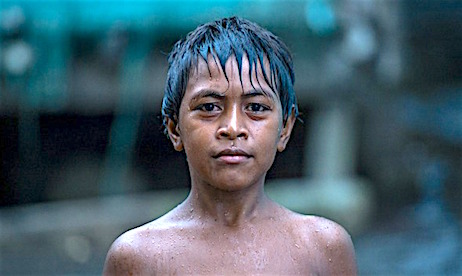Micah Puia lives in a shanty town on a dirty beach in Honiara, the capital of the Solomon Islands. He is 11 years old, and has lived here all his life.
He sleeps in a raised fibro hut.
He lives with his grandparents and several cousins, attends second grade at a local school and swims in the mouth of the Mataniko River, alongside the community’s cotes of pigs and chooks, and where the waterway dumps into the Pacific Ocean.
According to some here, Micah has spent his whole life as a climate change refugee.
He will soon be forced to move.
Anglican priest Fr Nigel Kelaepa says both the growth and expected end of the settlement can be linked to climate change triggered by wealthy countries’ greenhouse gas emissions.
“I believe the people here are climate change refugees,” Kelaepa says ahead of attending the United Nations climate summit starting in Paris on November 30, in part to speak about his on-camera role in a World Vision funded documentary, Fading Sands.
Mich’s people are Polynesian, hailing from Ontong Java – an outlying atoll about 400 kilometres to the north.
The shanty town known as Lord Howe Settlement (not to be confused with the Australian island) is small, but has expanded dramatically in recent years.
There are now more than 1000 people, crowded in an expanding labyrinth of small buildings that spreads between the city’s main road to the water.
What was about half a dozen shacks in the early 1970s, mostly home to people needing to visit the capital for medical treatment, gradually grew into a permanent settlement.
Now, in the wake of a storm and flood that last year brutalised Honiara, community leaders are questioning its future.
Source
- theage.com.au
- Image: theage.com.au
